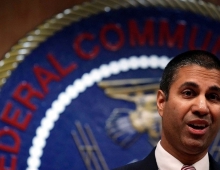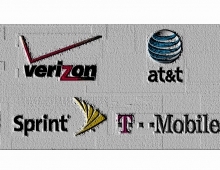
FCC Chairman Wheeler Proposes New Rules for Protecting the Open Internet
Internet service providers (ISPs) , including those selling wireless connections, would be prohibited from slowing down or speeding up web traffic, under rules proposed Wednesday by a U.S. Federal Communications Commission (FCC ) that would subject the broadband industry to unprecedented regulation. FCC chairman Wheeler is proposing sustainable, enforceable rules to preserve and protect the open Internet as “a place for innovation and free expression.” His common-sense proposal would replace, strengthen and supplement FCC rules struck down by the U.S. Court of Appeals for the District of Columbia Circuit more than one year ago. The Chairman’s proposal will be voted on the FCC’s February 26 open meeting.
An open Internet allows consumers to access the legal content and applications that they choose online, without interference from their broadband network provider. It is ensuring that new products and services developed by entrepreneurs aren’t blocked or throttled by Internet service providers putting their own profits above the public interest.
The Chairman’s proposal would reclassify “broadband Internet access service”- that’s the retail broadband service Americans buy from cable, phone, and wireless providers- as a telecommunications service.
The new rules would also apply to mobile broadband, recognizing advances in technology and the growing significance of wireless broadband access in recent years. Today, 55 percent of Internet traffic is carried over wireless networks.
Wheeler says the first three rules would ban practices that are known to harm the Open Internet:
- No Blocking: broadband providers may not block access to legal content, applications, services, or non-harmful devices.
- No Throttling: broadband providers may not impair or degrade lawful Internet traffic on the basis of content, applications, services, or non-harmful devices.
- No Paid Prioritization: broadband providers may not favor some lawful Internet traffic over other lawful traffic in exchange for consideration – in other words, no “fast lanes.” This rule also bans ISPs from prioritizing content and services of their affiliates.
Because the Internet is always growing and changing, there must be a known standard by which to determine whether new practices are appropriate or not. Thus, the proposal would create a general Open Internet conduct standard that ISPs cannot harm consumers or edge providers.
For the purposes of the rules, other than paid prioritization, an ISP may engage in reasonable network management. This recognizes the need of broadband providers to manage the technical and engineering aspects of their networks.
In assessing reasonable network management, the FCC’s proposed standard would take account of the particular engineering attributes of the technology involved-whether it be fiber, DSL, cable, unlicensed wireless, mobile, or another network medium.
However, the network practice must be primarily used for and tailored to achieving a legitimate network management-and not commercial-purpose. For example, a provider can’t cite reasonable network management to justify reneging on its promise to supply a customer with “unlimited” data.
Some data services do not go over the public Internet. The Chairman’s proposal will ensure these services do not undermine the effectiveness of the open Internet rules. Moreover, broadband providers’ transparency disclosures will continue to cover any offering of such non-Internet data services.
For the first time the Commission would have authority to hear complaints and take appropriate enforcement action if necessary, if it determines the interconnection activities of ISPs are not just and reasonable, thus allowing it to address issues that may arise in the exchange of traffic between mass-market broadband providers and edge providers.





















